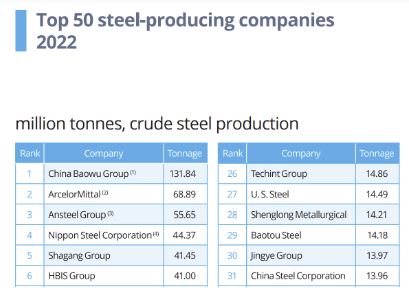In the 1980s, Americans feared Japan’s rising economic power. Conflict in the Pacific theater was still in Americans’ collective memory, and many worried that we were feeding our mortal enemies.
This sentiment was captured in movies like Gung Ho (1986), Karate Kid II (1986), Teenage Mutant Ninja Turtles (1990), and Rising Sun (1993). Just about the only film at the time that positively depicted the growing relationship between the US and Japan was Die Hard (1988), and even here the Nakatomi CEO joked that the Japanese are “flexible” in their methods: “Pearl Harbor didn’t work out so we got you with tape decks.”
Japanophobia was overblown in the 1980s; in the 2020s it’s downright ridiculous.
But an element of it is alive and thriving in the form of concerns about the proposed acquisition of U.S. Steel by Tokyo-based Nippon Steel, which in December announced intent to buy the Pittsburgh-based company for $14.1 billion.
Nippon Steel is the No. 1 steel producer in Japan and No. 4 worldwide. Its annual production is 44 million tons, while U.S. Steel’s is 14.5, according to the World Steel Association. Combined, the two would jump to the No. 3 spot.

Source: 2023 World Steel in Figures via worldsteel.org.
With manufacturing facilities in Japan and 15 other countries, Nippon Still has a 40-year history of operating steel mills in the United States. Its regional headquarters are in Houston. If this deal goes through, Nippon Steel’s investment will enable American workers to manufacture more steel in the United States to meet growing worldwide demand.
This merger is only controversial because some politicians and union leaders are exploiting the issue to create bad headlines for Nippon. But union workers themselves should support the deal, as the company already has a good relationship with the United Steelworkers (USW) and Nippon has promised to keep current compensation packages intact.
A Japanese company acquiring a U.S. company is not the same as the Chinese Communist Party (CCP) buying up huge tracts of land near military bases, planting cells of psychological warfare in college campuses, and sending sex spies after Democratic congressmen. Japan is our friend, whereas China has openly declared that it wants to unseat us as the world superpower.
If Asian companies can do business with us, they don’t have to do business with Chinese companies that, ultimately, feed the CCP’s military power. Indeed, now is the best time for the American private sector to strategically strengthen ties across the Pacific.
It is important to note that this deal would preserve steel manufacturing jobs in Pennsylvania. This is the result of President Trump’s push for onshoring, which has resulted in Nippon Steel investing in an American company with American workers to manufacture American steel to meet the growing demand of American consumers. If it’s harder to sell into America, then foreign investors have to buy into America.
Economic diplomacy is the best way to ensure that America and China are not indeed destined for war, because most Asian people outside of China (and many inside it) would rather see America stay the world’s economic superpower. America is too far away from Asia to ever have aspirations beyond making money, whereas China has a 600-year-old chip on its shoulder, an incomparable superiority complex, and none of the moral restrictions of the Greco-Judeo-Christian value system.
For decades, Japan has been our ally and close trading partner. This kind of business merger wasn’t terrible in the 1980s and it certainly isn’t now. Yippee-ki-yay!
Jared Whitley is an award-winning columnist and DC politico, having worked in the U.S. Senate, White House, and defense industry. He has an MBA from Hult Business School in Dubai.
The views and opinions expressed in this commentary are those of the author and do not reflect the official position of the Daily Caller.


